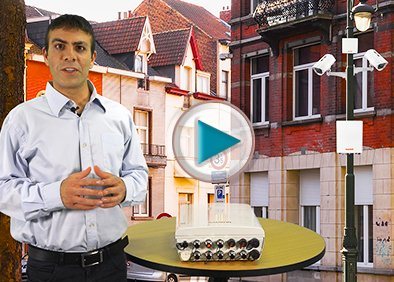Smart-Node: La primera solución de alimentación de energía y comunicaciones todo en uno del mundo
Smart-Node es la primera solución de alimentación de energía y comunicaciones todo en uno del mundo, que cierra la brecha entre las aplicaciones de banda ancha e IoT. Smart-Node ofrece energía y conectividad a diversos dispositivos, entre otros, cámaras CCTV, radios de banda ancha inalámbrica, puntos de acceso Wi-Fi y sensores IoT.
Portafolio de productos

Smart-Node AC o DC
Voltaje de entrada: 100 a 240 voltios AC o 40 a 57 voltios DC
Switch 5 puertos PoE GbE
UPS (en el modelo de AC)
Gestión unificada
RADWIN Smart-Node
La mejor calidad en potencia y comunicación.

Menores costos por sitio
Smart-Node elimina los costos de diseño y ensamble, y además tiene un excelente precio.

Varias opciones de alimentación de energía
Admite alimentación de energía AC o DC y varias salidas de energía (PoE de 15, 30 y 60 vatios, PoE Pasivo, 12, 24 y 56 voltios)

Flexibilidad
Puertos SFP y Ethernet/PoE para conectar diferentes dispositivos

Sistema de gestión unificada
Sistema de gestión de energía y comunicación que permite control y monitoreo remoto

Poco mantenimiento
Alta calidad y durabilidad en condiciones de temperatura extrema
Simplifica los despliegues de circuitos cerrados de televisión (CCTV), lo que reduce los costos
Smart-Node puede encender una gran diversidad de dispositivos de videovigilancia del sitio, incluidas cámaras, altavoces de perifoneo, radios de banda ancha y proyectores infrarrojos
Smart-Node para videovigilancia
¿Qué puede hacer Smart-Node por usted?

Videovigilancia

Conectividad de banda ancha

Conectividad Wi-Fi



